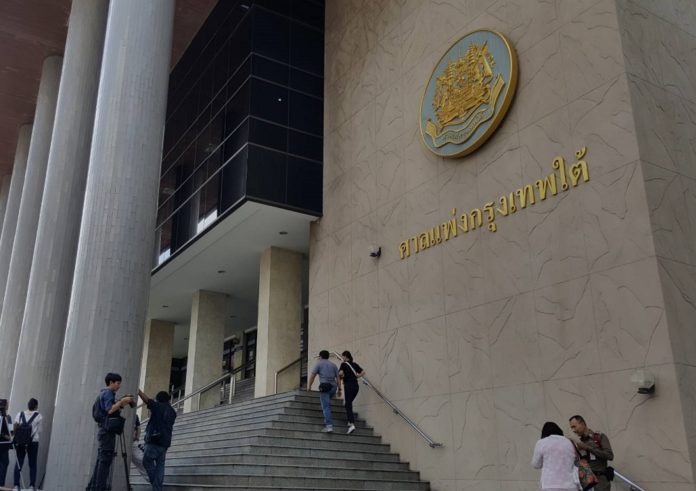The Civil Court has rejected an attempt by a group of activists who were seeking an injunction to stop enforcement of the emergency decree, saying it curtails people’s rights to expression.
The three plaintiffs led by the Internet Law Reform Dialogue (iLaw) petitioned the court on Tuesday to abolish enforcement of the decree, and for a temporary injunction pending a final ruling.
But the court on Friday ruled against their request on grounds that the decree, which bans gatherings of five people or more, was aimed at curtailing the spread of Covid-19, with no evidence showing it was affecting political rallies.
“There is no genuine and reasonable ground for granting the temporary restraining order as requested and thereby the motion shall be dismissed,” the court said in a statement.
The petition was lodged against Prime Minister Prayut Chan-o-cha and five related authorities linked to the issuance of the decree.
The petitioners — iLaw manager Yingcheep Atchanont, feminist movement representative Chutima Tangkliang and Ratsadon protest group core member Atthapol Buapat — demanded 4.5 million baht compensation for damages incurred by the enforcement of the decree.
They said in the petition that they were among the damaged parties as they were charged under the decree for speaking at a rally organised by the United Front of Thammasat and Demonstration on March 24 of this year.
They faced legal prosecution despite exercising their rights to free expression and participating in a peaceful protest, which are guaranteed by the constitution.
Mr Yingcheep said the decree may be applied to limit certain rights for the sake of containing the pandemic.
However, it cannot be invoked in support of the government’s order to suspend or break up protests, he maintains.
The petitioners asked the court to revoke the decree. Revocation would have retroactive effect, meaning all charges brought against people under the decree would be annulled.
The court set Jan 31 as the date for its next hearing to consider the petition.
The government said in early September that it would consider ending the emergency decree at the end of the month. Authorities reasoned that other laws related to public health would be equally effective if needed to deal with the pandemic.
However, officials later changed their mind and extended the enforcement of the decree until the end of November.
According to a report released by Thai Lawyers for Human Rights last month, 1,161 people have been charged in connection with political protests between July 2020 and August 2021.
Of the total, 902 face charges of violating the the emergency decree that prohibits gatherings of more than five people. Another 320 people have been charged with violating Section 215 of the Criminal Code, which bars gatherings of more than 10 people with intention to create an act of violence or disturb the peace.
Other charges include violation of Section 112 or lese-majeste, involving 124 people, and 107 charges under Section 116 or sedition.
bkk




